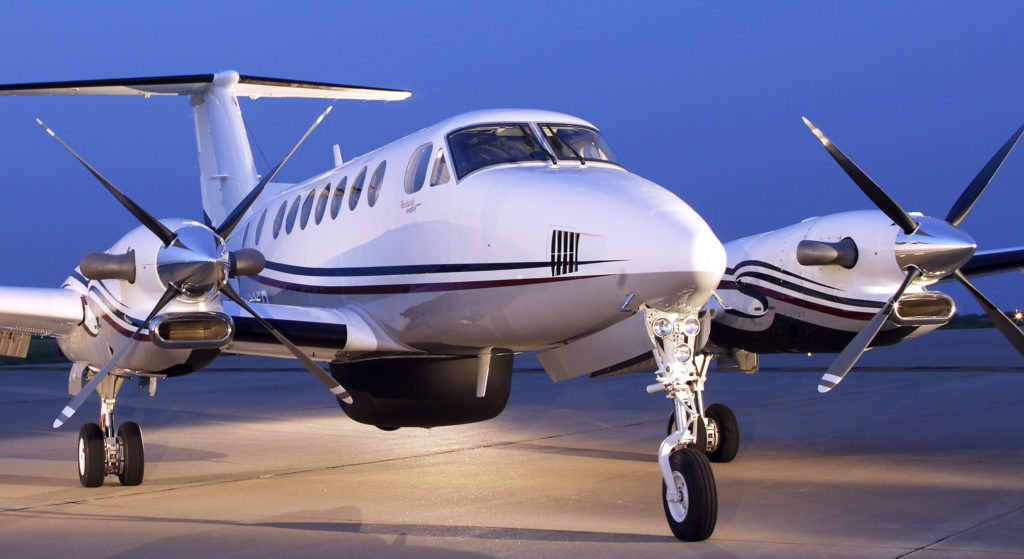Estimated reading time 4 minutes, 47 seconds.
The U.S. State Department has approved the possible sale of three King Air 350ER aircraft to meet a Canadian requirement for a manned airborne intelligence, surveillance and reconnaissance (MAISR) platform.

Airborne ISR systems were one of five investments specifically identified in the government’s 2017 defence policy for Canadian special operations forces. The foreign military sale would provide a capability that special forces’ command (CANSOFCOM) has been seeking for several years, but it could come with a high price tag.
The Defense Security Cooperation Agency (DSCA) announced on Oct. 4 approval for the sale of three extended range King Air 350 twin-turboprops from Wichita, Kansas-based Beechcraft, part of Textron Aviation. With Canadian modifications for some of the ISR systems, the estimated cost was pegged at $300 million, the agency said.
A spokesperson for National Defence noted in an email that the cited cost “is not the final price; it is the full and all-inclusive value of every aspect of the aircraft, their supporting systems, and all potentially related costs, including contingency and risk. The final cost is anticipated to be much lower.”
Ashley Lemire said the Canadian and U.S. governments would work to more clearly define the requirements in the coming months and “negotiate an acceptable price.”
According to DSCA, the proposed sale would include the three aircraft fitted with WESCAM MX-15D electro-optical and infrared imaging sensors, AN/AAR-47B(V)2 missile and laser warning systems, AN/ALE-47 countermeasure dispenser systems, KIV-77 Mode 4/5 crypto applique computers for friend and foe identification, plus various advanced receivers and transponders and network encryptors.
It would also include mission equipment, communication and navigation equipment, special tools and test equipment, ground support equipment, airframe and engine spare parts, as well as training.
“This proposed sale will support the foreign policy and national security objectives of the United States by helping to improve the military capability of Canada,” DSCA said in a statement. “The proposed sale improves Canada’s capability to meet current and future threats; strengthen its homeland defence and the combined defence of North America; and supports coalition partners overseas. This proposed sale will improve interoperability with U.S. forces and other regional allies.”
Though CANSOFCOM had been looking at options from a number of potential suppliers, including Canadian manufacturers, a DND spokesperson told Skies in May that the U.S. government was “identified as the only source of supply capable of providing the fully-integrated solution.”
“Aircraft such as these will help enhance the ability of our Special Operations Forces to improve their understanding of the operational environment,” said Jessica Lamirande. “MAISR will have the capacity to be deployed on short notice and will provide the [Canadian Armed Forces] with better situational awareness on the ground and thus positively affecting the ability of CAF leaders to make decisions leading to mission success.”
Though the aircraft will be a special forces asset, the King Airs will be operated and maintained by the Royal Canadian Air Force. “The RCAF is the lead force generator for the actual capability,” BGen Michel Lalumiere, director general of Air Force Development, told Skies. “This is a sophisticated system, so there’s a lot of integration” for near-real data transfer and ensuring interoperability with allies.
“We will be in contested areas with this aircraft and sometimes adversaries have a vote,” he said. “This aircraft needs to bring, definitely, a set of capabilities to be able to operate in those types of environments.”
In addition to modifying the aircraft with ISR equipment, the Canadian government will also seek to procure in-service support (ISS) through a competitive process.
On Oct. 4, Public Services and Procurement Canada issued a letter of interest inviting industry to attend a presentation from CANSOFCOM and procurement officials on the sustainment requirements, which have national security implications.
A letter of interest for feedback on MAISR in-service support was issued in April and over 15 companies registered to attend an ISS industry day in June. Further industry engagement activities are expected to continue until the spring of 2019.
Delivery of the first King Air is expected by 2020.









OHHH BOY ..read yesterday that the cost might BE an extra 140 million ..way to CANADIAN GOVT. !!! 🙁
Canada needs the equipment therefore it should be purchased. We cant operate super cubs with binoculars so something sophisticated is necessary with all weather capability and presurization. The aircraft will accomodate a surveilance team working on consuls properly equipped with sophisticated surveilance technology. It can also transport several people to do the job as a team. This was a good choice and it can work anywhere in Canada. Nice choice!
I agree, Canada needs to open thier wallet and support our allies.
I agree with President Trump, it’s time NATO countries including Canada invest in new hardware to support Western democracy.
too slow and no altitude obsolete before they fly. they may as well stay with the super cubs at least they can fly under the radar